Frequently asked Personal Trainer Certification Questions

Okay, now that we’ve covered some of the basics on the more widely popular personal trainer certification programs, we want to dig deeper and answer those burning questions you have about the certification process.
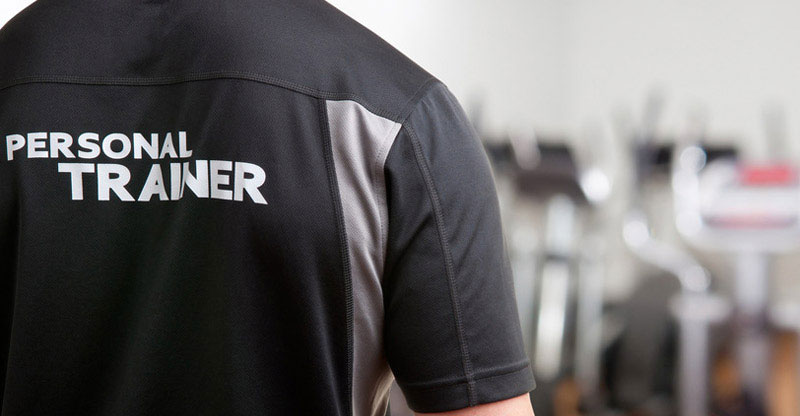
Is Choosing an Accredited Certification Program Necessary
Questions about the benefits of accreditation prompted our curiosity on this issue. So, to find out the answer to this somewhat ambiguous question, we decided to go right to the source. We called the folks at The National Commission for Certifying Agencies (NCCA), which was created in 1987 by The Institute for Credentialing Excellence (ICE) – the results might surprise you.
If you’re comparing accreditation at educational institutions to the personal trainer certification process, don’t. Accreditation of educational institutions carries benefits quite different from the personal trainer programs. The biggest difference is transferring units. Here’s a summary of what the representative at NCCA said, “as a third party accreditation agency, we make sure that the personal trainer certification programs adhere to the best standards and practices for the industry.” They go on to say, “our accreditation is not on par with educational accreditation, so units usually can’t be transferred to another school or college.”What does this mean for you? This means that within the personal trainer industry, accredited certification programs carry some weight. Employers may favor applicants that gained their certification from an accredited program. As far as transferring credits, the NCCA accreditation is not recognized. This is an important distinction for students that have aspirations to go beyond a personal trainer position. Positions in health and fitness management, exercise science, kinesiology, and physical education requires a bachelor’s degree.The differences we’ve sited in no way diminishes the time and energy these certification organizations put forth to gain accreditation. The value you place on getting certified is the same value these organizations place on getting accredited, and this is important to note.
Who is the DETC?
DETC stands for Distance Education and Training Council. This is an accrediting agency nationally recognized by the U.S. Department of Education, the Council for Higher Education (CHEA), and the International Health, Racquet and Sportsclub Association (IHRSA)The personal trainer certification agency, International Sports Sciences Association (ISSA), is the only organization we found at this time that has this accreditation. This means ISSA courses can be transferred for college credits. This also means ISSA is listed with DANTES, and their programs are fully approved for military tuition assistance. One other interesting fact, that has no bearing on the subject, is that ISSA now has the extension EDU after their url, instead of ORG.
What Are The Best Personal Trainer Certification Programs?
This is probably the most asked question among potential personal trainers. The reason, no one really knows the answer. And then to complicate the matter, it depends on what was popular with the fitness center or the employer at the time. You must remember that competition among fitness centers is quite fierce, and marketing plays a big part in their certification requirements for potential fitness trainers. Having said that, here are five organizations that surfaced most often in forums as being the best:
- NASM – offers self-study, online materials. The NASM certification is widely known and accepted at most fitness centers.
- ISSA – is recognized internationally. Accredited by DETC, offers several different training classes, and certification is accepted in a variety of fitness industries.
- AFFA – offers distance education/online studies. Primary focus is on personal training and group exercise, which is perfect for fitness centers and individual instruction.
- ACE – offers a wide range of certifications, including personal trainer. Home-study/online learning fits students schedule. ACE certification is widely accepted at most health clubs and fitness centers.
- NSCA – focus is on strength and conditioning. Has affiliations internationally, offers career services, well respected in the industry.
The next logical question is, why are they the best? Why isn’t ACSM, a well known, widely acclaimed sports medicine certification agency on the list?
Many people who have taken and passed the ACSM personal trainer certification test speak highly of it. To properly answer these questions we will have to look at the differences and similarities in the various certifications.
Certification Reviews
Employment is a major factor in determining the type of certification one seeks. As mentioned, most employers look favorably on organizations that are NCCA accredited. So, we first want to look at organizations that are NCCA accredited and accepted at most gyms and fitness clubs. There are four organizations that fit this criteria, they are:
- ACE
- NASM
- ACSM
- NFPT
Now, there was some discussion about what certification would be more adaptable for working with seniors, and the votes went to NASM. There’s also a Certified Strength and Conditioning Specialist Certification (CSCS) for personal trainers who wish to train professional athletes.
How specific can a personal trainer get? Did you know you can get certified by ACSM as a cancer exercise trainer? Maybe NSCA’s tactical and strength conditioning trainer certification program sparks your interest. There’s many specialty areas personal trainers can branch off into, but the four above mentioned organizations are well rounded and top the list for basic personal trainer certification.
Best Online Personal Trainer Certification Programs
Technology and the Internet have opened more doors for online learning, also known as distance education. Some people still prefer the traditional classroom setting, but more and more are finding that online educational courses offer more flexibility. Then there are those situations where there are no local classes, which leaves the student with only one choice – online learning.Reputation means everything, when you’re looking for an online certification program. Employers only care that you pass the exam they require for employment in their business, but you need to look at the support and cost of the education you’re paying for. Here’s an example: Penn Foster is a vocational school offering a personal trainer certification course for the NCSF certification. The cost is approximately $1000 for the course, which includes exam fees. Compare this to getting the same materials from NCSF for $299, plus $199 for the exam fee; this is a savings of $500. Penn Foster does have online resources students have access to, whereas NCSF is a home study course, but the material is basically the same.As far as online personal trainer certification programs go, most major organisations offer online or home study learning. The two that keep getting the most thumbs up are ACE and ISSA. ACE has three programs ranging from $599 to $799. They all come with exam vouchers. The Two most expensive programs come with video lecture series, two practice tests and exam vouchers. The most expensive program includes a retest voucher. Remember, when we’re scouring the marketplace looking for the “best of,” we’re looking for certification programs with good reputations and ones that prepare future personal trainers for a wide range of job opportunities.
Still Struggling With Which Certification is Best?
We’ve presented a lot of information to you, and you’re not alone if you still are in a quandary about which certification is the best. If you look at forums and other venues where they entertain conversations about certification organizations, you’ll find pros and cons for just about all the major organizations.If you take ACE as an example, you find students stating that even though the exam is fairly easy, the material is comprehensive enough to be useful in their daily training.ISSA is another case of being caught between the two views. Some say the open book, online test lends itself to cheating, and this lowers the standard for quality trainers. On the other hand, there are popular fitness centers like Golds Gym , World Gym , Lifetime Fitness , and many more that accept ISSA certified trainers. There’s also a list of well known trainers who hold ISSA certifications, such as Andrew Penner (Pittsburgh Penguins), John Schaffer (coach Apollo Ohno), Lee Haney (Former Mr. Olympia), and Lou Ferrigno (Bodybuilder), to name a few.
Narrowing Your Choices – the only way you will find the best certification program for you, is by asking yourself some questions. Below are a few questions to start with:
- Where do I want to work? E.g., health club, gym, school.
- Do I want a career or a job?
- Location, what state/city will I be working?
- Do I want to work with special needs clients. E.g., seniors, disabled, handicapped.
- Do I need classroom training or distance education?
Answering these questions will help you focus in on your goals, and in turn find the best certification program to achieve that goal.
The location where you will seek employment can play a major role in what certification you need. As strange as it may seem, in some parts of the country one certification will take precedent over another. As mentioned earlier, a lot of this competition among certification organizations has to do with marketing. In either case, if you’re locked in on working in a certain location, then it would be prudent to see what organization is widely accepted in that area. Talking With Local Employers – if you really want to narrow things down, go talk with the folks that do the hiring. Especially the ones that you might want to work for in the future.
From all the research we’ve done, getting certified as a personal trainer is only half the battle. For those who are getting their personal trainer certifications for the fitness industry, your expertise in creating a fitness program for individuals and groups extends well past what you learned in books.Personal training is a people business. The economy, competition, personalities, and of course results, are contributing factors in the fitness business. All the articles we’ve read from professional personal trainers comes down to one thing – they love to help people. With this core passion, becoming a personal trainer and getting certified is a first step to a rewarding career. And it doesn’t stop there.There are so many areas trainers can branch off into. Many who started as personal trainers found themselves getting certified in sports medicine, senior fitness, health services, and many other areas of the fitness/health industry. There’s one other thing we really haven’t talked much about…costs. Unlike some other industries, where their programs can cost upwards of $10,000 and you’re stuck with one certification, you can achieve several different trainer certifications with each one costing under $1000.One article we came across said it best, “if you do what you love, then you’ll love what you do.” Find the best personal certification program for you, then go out and do what you love.
The best personal trainer certification will be ultimately up to you but we hope the information above helps you understand the differences and pros and cons of each accreditation agency.

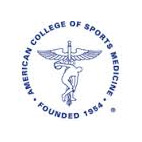 Recognised as the largest exercise science and sports medicine organisation in the world, ACSM sets the gold standard for personal training (PT) certification. This certification is ideal for individuals interested in working in clinical settings such as a hospital or university or for those who plan to eventually pursue a career in medicine or healthcare. Hospitals and wellness centers sometimes require this certification.
Recognised as the largest exercise science and sports medicine organisation in the world, ACSM sets the gold standard for personal training (PT) certification. This certification is ideal for individuals interested in working in clinical settings such as a hospital or university or for those who plan to eventually pursue a career in medicine or healthcare. Hospitals and wellness centers sometimes require this certification.
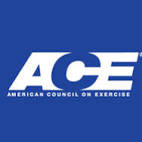
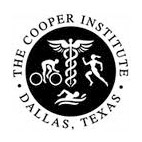 This certification differs from the others due to its emphasis on the importance of educating both children and adults to view and use exercise as a form of preventative medicine. Methodologies focus on training to promote health benefits more than improving optimal athletic performance. Holistic in approach, this certification may be most advantageous for those interested in working in integrative medical facilities, public health institutions and holistic wellness centers. The exam costs $289. Study materials range from $599-$899.
This certification differs from the others due to its emphasis on the importance of educating both children and adults to view and use exercise as a form of preventative medicine. Methodologies focus on training to promote health benefits more than improving optimal athletic performance. Holistic in approach, this certification may be most advantageous for those interested in working in integrative medical facilities, public health institutions and holistic wellness centers. The exam costs $289. Study materials range from $599-$899.
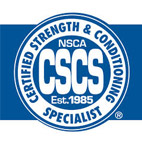 The NSCA certification is a very comprehensive in-depth program. While this certification prepares trainers to work with populations of varying fitness levels, it is geared more towards training healthier, active people. The exam, priced from $250-$435 (depending on membership) is one of the most difficult to pass.
The NSCA certification is a very comprehensive in-depth program. While this certification prepares trainers to work with populations of varying fitness levels, it is geared more towards training healthier, active people. The exam, priced from $250-$435 (depending on membership) is one of the most difficult to pass.
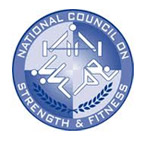 Reputable and widely accepted, NCSF offers one of the most affordable quality certification programs available. The exam costs $249. Packages that involve purely home study and those that include a two-day interactive workshop both cost $535. In addition, for people who learn best with classroom structure and teacher-student interaction, NSCF offers a 32 hour course on select college campuses and career institutes.
Reputable and widely accepted, NCSF offers one of the most affordable quality certification programs available. The exam costs $249. Packages that involve purely home study and those that include a two-day interactive workshop both cost $535. In addition, for people who learn best with classroom structure and teacher-student interaction, NSCF offers a 32 hour course on select college campuses and career institutes.
 Considered to be one of the best programs in the country, NASM certification may have the highest recognition in the industry. This program differs from others due to its emphasis on corrective training to address muscle imbalances. Though geared towards training healthy, active individuals and competitive athletes, this program is also ideal for those interested in training special populations.
Considered to be one of the best programs in the country, NASM certification may have the highest recognition in the industry. This program differs from others due to its emphasis on corrective training to address muscle imbalances. Though geared towards training healthy, active individuals and competitive athletes, this program is also ideal for those interested in training special populations.
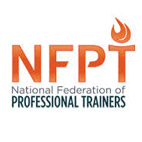 The NFPT program is one of the most affordable options on this list. The test costs $263. The premier self-study package runs $455 which is less expensive than many other programs.
The NFPT program is one of the most affordable options on this list. The test costs $263. The premier self-study package runs $455 which is less expensive than many other programs.